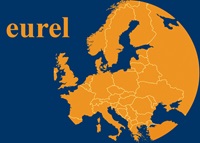Russia's large-scale invasion of Ukraine has led to a significant influx of Ukrainian refugees into the EU, with Slovakia being one of the primary destinations. Studies on Ukrainian refugees in Europe have primarily examined economic integration, employment, and cultural adaptation (Buzarov, 2023; Bannikova, 2023; Dimitrov & Pavlov, 2023; Barker, Victor, & Day, 2024). However, research on the role of religious communities in Slovakia remains scarce. This study aims to investigate the role of Slovak religious communities in shaping the residence strategies of Ukrainian refugees under temporary protection. By examining how religious communities facilitate or hinder social interactions, this research contributes to a deeper understanding of refugee adaptation and integration in Slovakia.
This research explores the following key questions:
How do religious communities in Slovakia influence the social interaction strategies of Ukrainian refugees with temporary protection?
Is there a correlation between engagement with religious communities and the residence scripts chosen by Ukrainian refugees?
The main hypothesis is that religious communities serve as important socialization agents that influence residence scripts through support networks, material assistance, and ideological frameworks. This impact manifests in different social interaction strategies, affecting whether refugees remain in Slovakia, return to Ukraine, or relocate to another country.
This study builds on J.W. Berry's (1997) acculturation and interculturation theories, focusing on adaptation in three interconnected spheres: material, social, and mental.
The research employs a mixed-methods approach, including:
Quantitative Methods: Surveys and structured questionnaires to measure the level of engagement with religious communities and its correlation with residence strategies.
Qualitative Methods: In-depth interviews with Ukrainian refugees and religious community leaders, as well as participant observation in church activities and religious support networks.
Respondents include refugees who remained in Slovakia or returned to Ukraine. This approach ensures a comprehensive understanding of religious influence across different residence scripts.

 PDF version
PDF version
